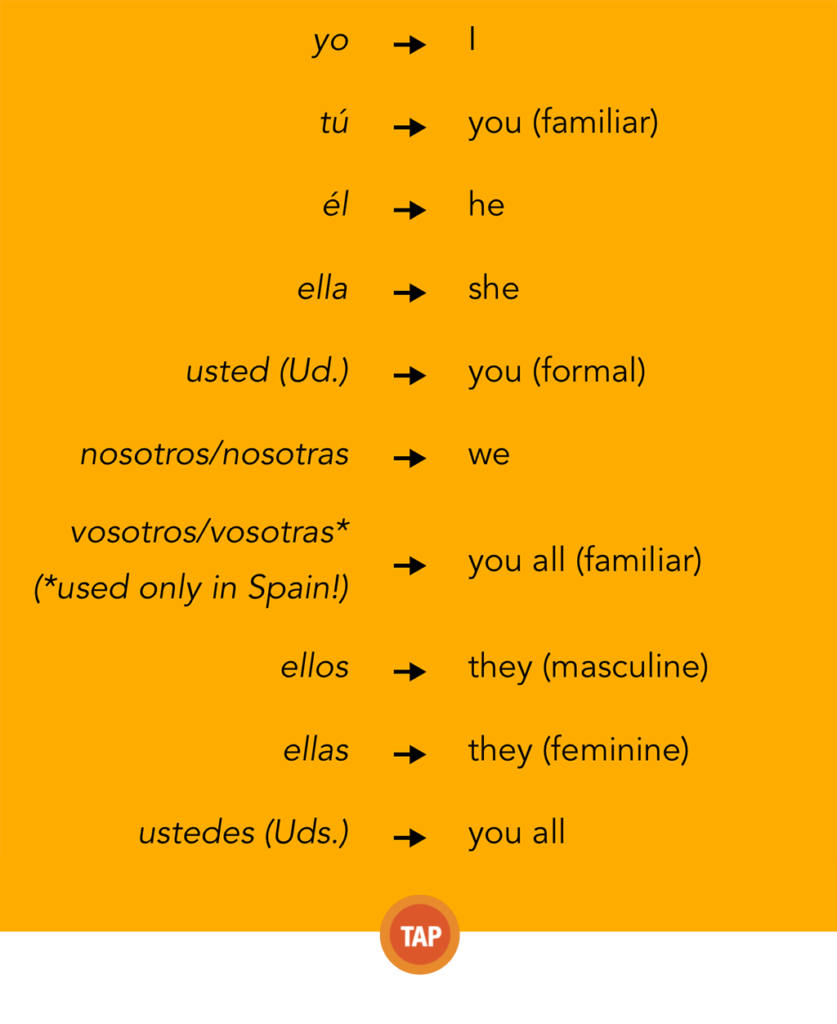LECCIÓN 1 / Beginner
B

SUBJECT PRONOUNS
Pronouns are words that can take the place of nouns. Nouns are people, animals, places, things or ideas. A subject pronoun can serve as the main actor of a sentence. In English, we use subject pronouns all the time. In Spanish, however, subject pronouns are only used for emphasis or clarity.
Here are the subject pronouns in Spanish and their English equivalents:
- You may have noticed that Spanish expresses “you” in two different ways: tú and usted (commonly abbreviated Ud.)
- Tú is used when a person directly addresses a friend or peer. It is a familiar, friendly pronoun.
- Ud. also means “you,” but it is reserved for addressing a stranger, an acquaintance, someone whose title you use (Dr., Professor), or someone older than you. It is a formal, respectful greeting. When in doubt, it is wise to use Ud.

EXAMPLES
Yo hablo con Chayanne, pero tú cantas con Shakira.
I talk with Chayanne, but you sing with Shakira.
¿Miguel, Isabel? –¡Nosotros estamos aquí!
Miguel? Isabel? –We’re here!
Ellas no comen hamburguesas en la cafetería.
They don’t eat hamburgers in the cafeteria.
Uds. no limpian el sofá.
You all don’t clean the sofa.
Vosotros vivís en Guadalajara, ¿no?
You all live in Guadalajara, don’t you?
Ramón y Mercedes son amigos; él es de México y ella es de Venezuela.*
Ramón and Mercedes are friends; he is from Mexico, and she is from Venezuela.
*Note: In this sentence, the listener would be confused without “él” and “ella.”



